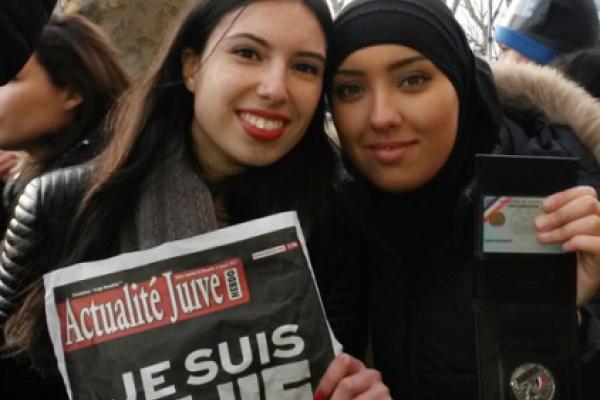As France emerges from its worst terrorist attack in decades, a biting novel that imagines the country governed by Islamic law is part of a swirling debate about its basic values. Will the country respond to the shootings with fear and xenophobia, as suggested by the book “Soumission,” or “Submission” — or embrace its multicultural, multifaith identity?
On Jan. 11, solidarity was on display as heads of state and religious leaders joined millions on the streets of Paris in a massive march for free expression and to honor last week’s victims from the satirical magazine Charlie Hebdo.
Along with “I am Charlie,” some protesters also chanted “I am Jewish” in tribute to the four men gunned down by one of the assailants at a kosher market.
Muslims carried signs saying, “I am Charlie and Muslim.” And on Twitter, thousands of French rallied behind “#JeSuisAhmed” — referring to policeman Ahmed Merabet, a Muslim, who also died in the attack on the magazine.
On the edge of the dense crowd, high school student Amina Tadjouri clasped a Jewish newspaper, as she stood next to a Muslim cleric railing against radical Islam.
“I’m Muslim, and I’m not OK with these killings,” she said.
Read the Full Article

